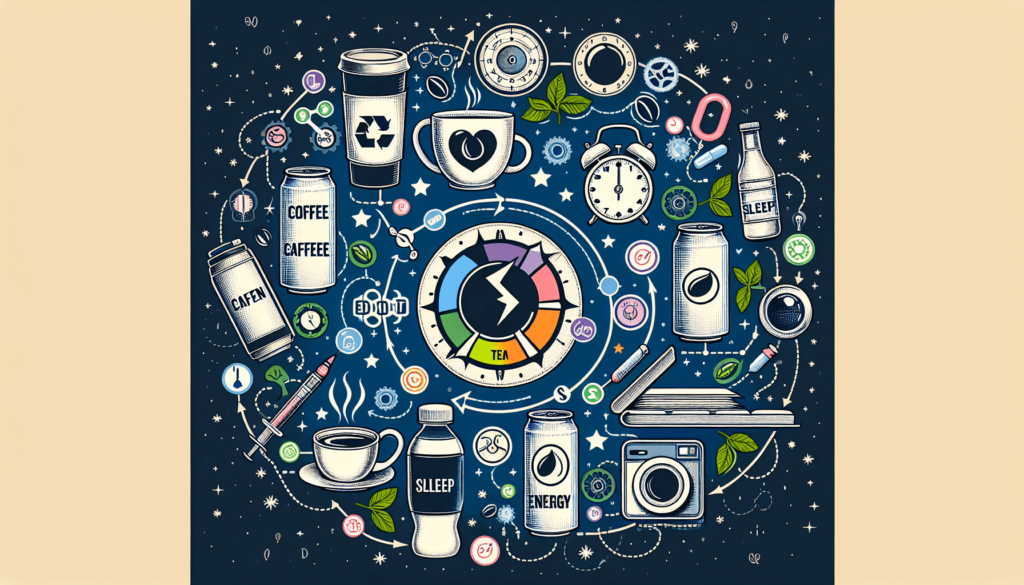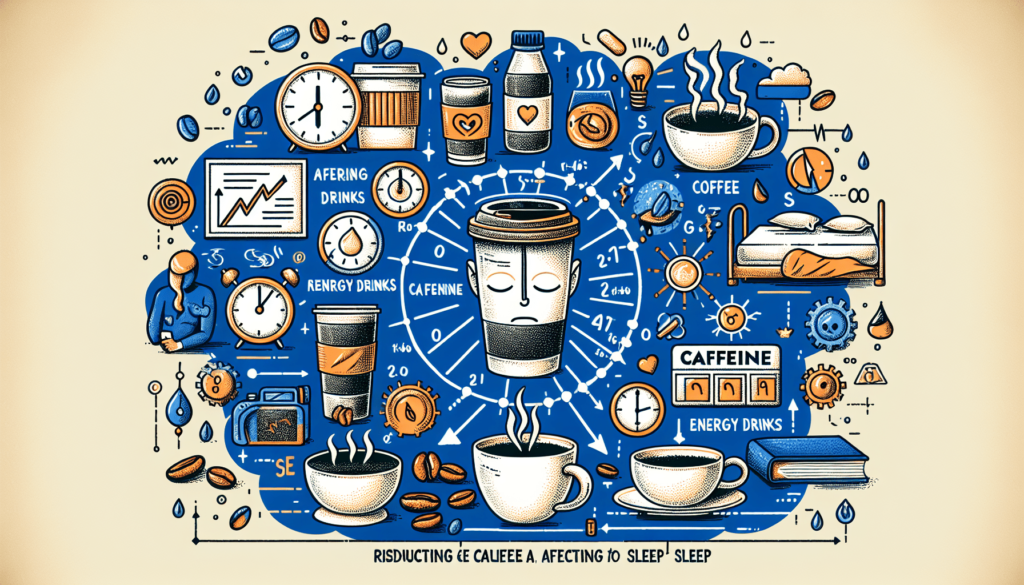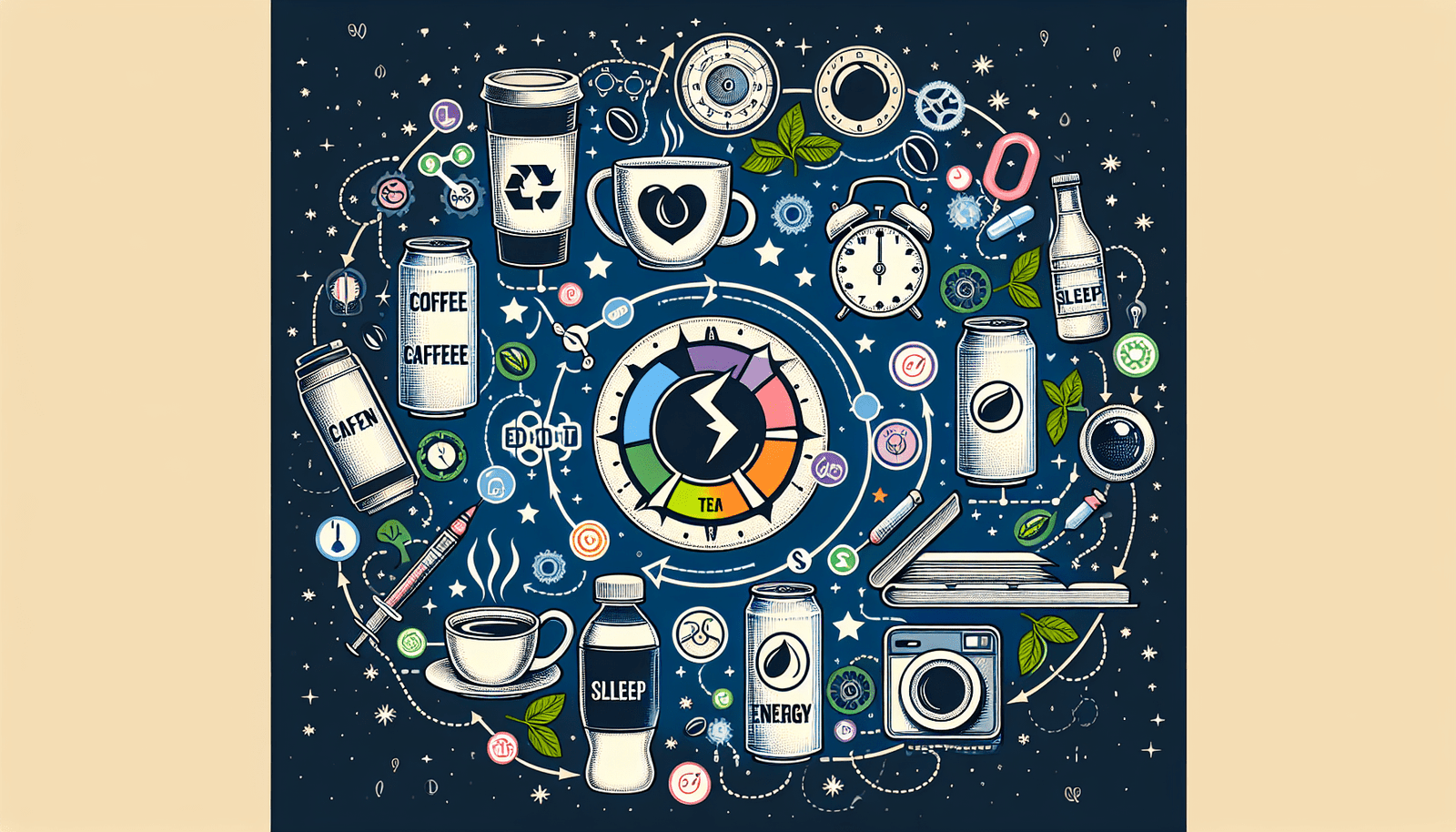So you’ve had a long day and you’re looking forward to getting a good night’s sleep. However, before you hit the hay, you remember that cup of coffee you had earlier in the evening. Now you’re wondering, how does caffeine affect sleep? Well, my friend, buckle up because we’re about to explore the fascinating relationship between caffeine and your precious slumber.

What is caffeine?
Caffeine is a naturally occurring stimulant that belongs to a group of compounds called methylxanthines. It is found in various plants, including coffee beans, tea leaves, and cocoa pods. Caffeine is commonly consumed in beverages such as coffee, tea, energy drinks, and soda, but it can also be found in certain foods and medications. Its stimulating effects on the central nervous system can help increase alertness and reduce drowsiness.
Caffeine and the sleep-wake cycle
The sleep-wake cycle, also known as the circadian rhythm, is a natural biological process that regulates our sleep and wakefulness throughout the day. This cycle is influenced by various factors, including light exposure and the release of certain hormones. Caffeine has the ability to interfere with the sleep-wake cycle by blocking the action of a neurotransmitter called adenosine, which is involved in promoting sleepiness. By inhibiting adenosine receptors in the brain, caffeine promotes wakefulness and alertness.
Caffeine’s impact on sleep quality
While caffeine can help you stay awake and alert during the day, its consumption can have negative effects on the quality of your sleep. The stimulant effects of caffeine can make it difficult to fall asleep, leading to a delayed onset of sleep. Additionally, it can disrupt the normal sleep stages, such as REM (rapid eye movement) sleep, which is important for cognitive function and memory consolidation. Caffeine can also reduce the total amount of sleep you get and increase the number of awakenings during the night.

Individual differences in caffeine sensitivity
Not everyone responds to caffeine in the same way. The way our bodies metabolize caffeine is influenced by our genetics, specifically the activity of certain enzymes involved in caffeine metabolism. Some people are considered fast metabolizers, meaning they break down caffeine more quickly, while others are slow metabolizers. This can result in differences in sensitivity to caffeine’s effects. Additionally, individuals who regularly consume caffeine may develop a tolerance to its effects, requiring higher doses to achieve the same level of wakefulness.
Timing of caffeine consumption
The timing of caffeine intake can greatly impact its effects on sleep. After consumption, caffeine is rapidly absorbed into the bloodstream and reaches peak levels within 30 to 60 minutes. The half-life of caffeine, which is the time it takes for the body to eliminate half of the caffeine, is typically around 3 to 5 hours. To minimize its impact on sleep, it is recommended to avoid consuming caffeine in the late afternoon and evening. A general recommendation is to limit caffeine intake at least 6 hours before bedtime to allow enough time for its effects to wear off.
Effects of caffeine on sleep disorders
Caffeine can significantly worsen sleep disorders such as insomnia, sleep apnea, and restless legs syndrome. Insomnia is a condition characterized by difficulty falling asleep or staying asleep. Consuming caffeine, especially close to bedtime, can further disrupt sleep and exacerbate the symptoms of insomnia. In individuals with sleep apnea, caffeine can interfere with the quality of sleep by increasing the frequency and duration of breathing interruptions during the night. Restless legs syndrome, a neurological disorder characterized by an uncontrollable urge to move the legs, can also be aggravated by caffeine consumption.
Caffeine and sleeplessness in adolescents and children
Adolescents may be particularly vulnerable to the effects of caffeine on sleep. Their still-developing nervous systems are more sensitive to the stimulant effects of caffeine, and they may experience greater difficulty falling asleep and staying asleep after consuming caffeine. In children, caffeine consumption should be closely monitored and limited, as their smaller bodies may be more susceptible to its effects. Excessive caffeine intake in children has been associated with sleep disturbances, developmental issues, and behavioral problems.
Managing caffeine intake for better sleep
To improve sleep quality, it is important to be aware of the caffeine content in beverages and foods. Coffee, tea, energy drinks, and soda are common sources of caffeine, but it can also be found in chocolate, certain medications, and even some over-the-counter pain relievers. Moderation is key when it comes to caffeine consumption. Limiting intake to moderate levels, especially in the evening and nighttime, can help reduce the negative effects on sleep. Consider drinking caffeine-free alternatives such as herbal tea or decaffeinated coffee in the evening to minimize its impact on sleep.
Effects of caffeine withdrawal on sleep
If you regularly consume caffeine and abruptly stop, you may experience symptoms of caffeine withdrawal. These symptoms can include headache, fatigue, irritability, difficulty concentrating, and changes in mood. Caffeine withdrawal can also disrupt sleep, as the body adjusts to the absence of caffeine. The duration of withdrawal effects on sleep can vary from person to person, but they generally subside within a week or two as the body adapts to the new caffeine-free state.
Caffeine’s influence on sleep disorders treatment
For individuals with sleep disorders, caffeine can interact with medications and impact the effectiveness of therapy. Certain sleep medications may have an increased risk of side effects when combined with caffeine. This is especially true for prescription medications that depress the central nervous system, such as sedatives and anti-anxiety drugs. Additionally, the presence of caffeine in the body can interfere with the accuracy of sleep studies, making it more challenging to diagnose and treat sleep disorders accurately.
In conclusion, while caffeine can provide a temporary boost in wakefulness and alertness, its consumption can have a negative impact on sleep quality. The stimulant effects of caffeine can disrupt the sleep-wake cycle, delay sleep onset, disrupt sleep stages, and reduce total sleep time. Individual differences in caffeine sensitivity and timing of consumption can also play a role in the effects of caffeine on sleep. To promote better sleep, it is important to be aware of caffeine content, moderate consumption, and consider caffeine-free alternatives in the evening. Managing caffeine intake and being mindful of its effects can contribute to improved sleep quality and overall well-being.
